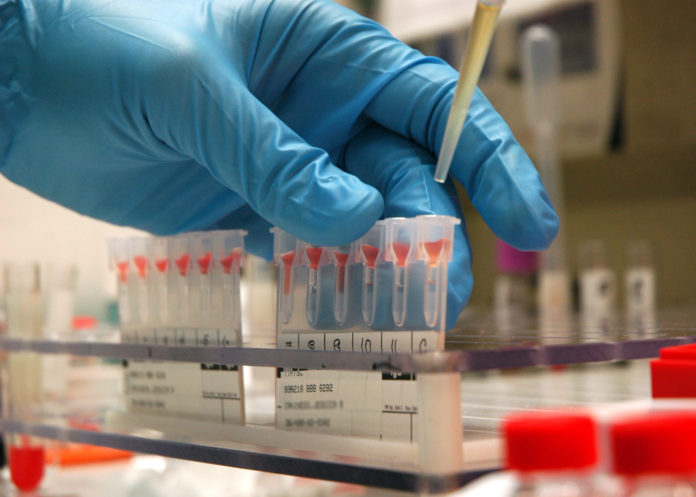Biopsy using a blood test can identify mutations better and is not invasive
Liquid biopsy by blood test identifies treatable cancer mutations more than tissue biopsy alone. Liquid biopsies use circulating tumor DNA (ctDNA) – shed by tumors and circulating in the blood – to test for mutations using next-generation sequencing.
ctDNA can be obtained through a simple blood test in the physician’s office, thus allowing patients to avoid the discomfort and inconvenience of an invasive biopsy procedure.
In a new study, researchers from the Abramson Cancer Center of the University of Pennsylvania examined the impact of using a blood test to detect treatable mutations in non-small cell lung cancer (NSCLC).
“Solid tissue biopsy is still essential for accurate diagnosis, but we’ve now shown liquid biopsy can add value when it’s used additionally”
The addition of liquid biopsy nearly doubled the number of mutations detected compared to what solid tissue testing alone would have found. Importantly, 86 percent of patients with targetable mutations identified via liquid biopsy achieved either a complete response, partial response, or stable disease.
The results of the study were published in JAMA Oncology.
Therapies that target specific mutations have dramatically changed the outcomes in cancer patients, and screening for such mutations can indicate both disease growth and treatment resistance. 323 patients treated between April 2016 and January 2018 were included in this trial. 35 percent (113) of these patients were determined to have targetable mutations.
Overall, addition of liquid biopsy nearly doubled the number of mutations detected from 47 (20.5 percent) to 82 (36 percent). Sixty-seven patients received a targeted therapy indicated by liquid biopsy alone or liquid and solid biopsy together. 86 percent of those who received a targeted treatment indicated by liquid biopsy achieved either a complete response, partial response or stable disease.
“Solid tissue biopsy is still essential for accurate diagnosis, but we’ve now shown liquid biopsy can add value when it’s used additionally, and also that it can serve as a viable alternative when solid biopsies aren’t feasible,” said lead author Erica L. Carpenter, director of the Abramson Cancer Center’s Circulating Tumor Material Center. The researchers note the findings do not indicate liquid biopsy should replace tissue biopsy.


